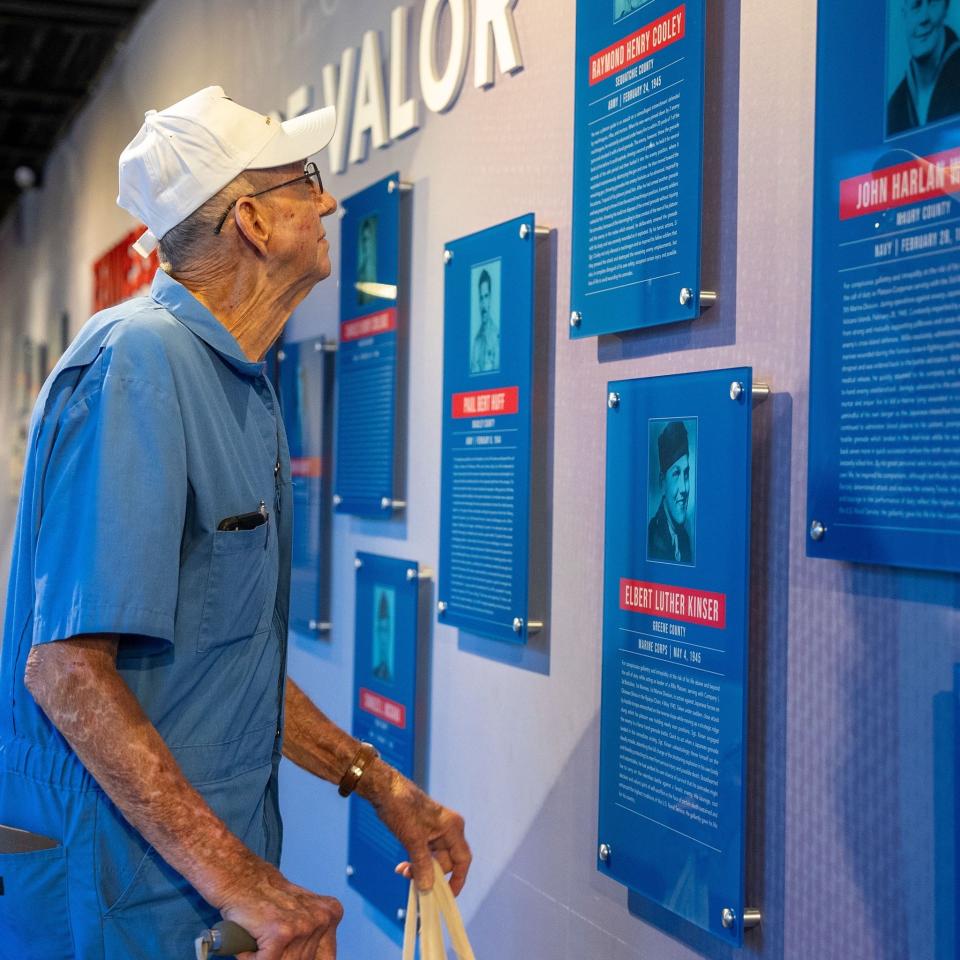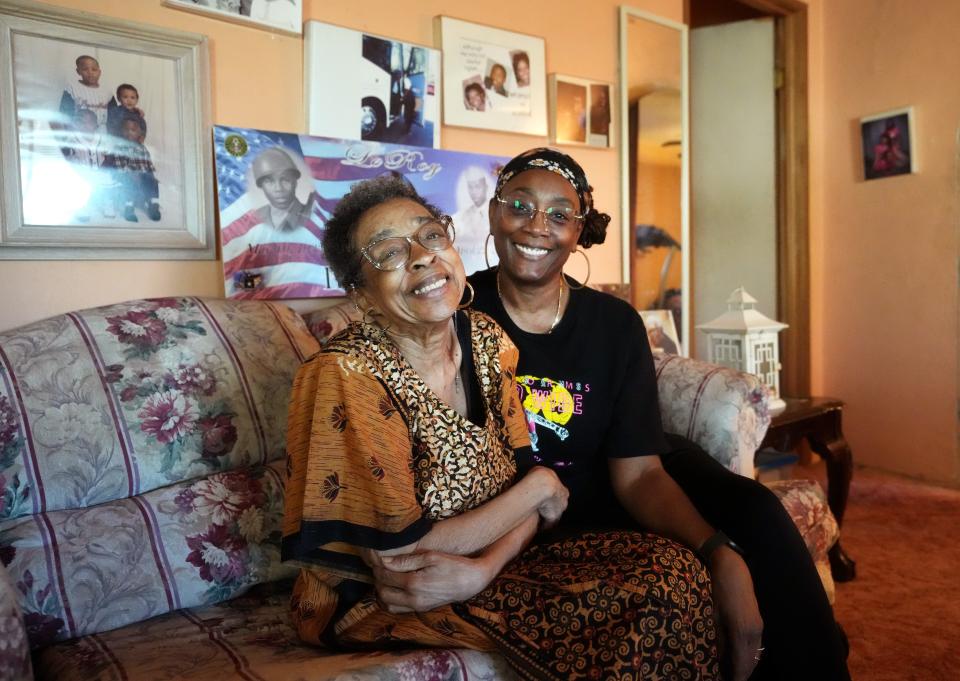How Tennesseans can pick long-term care facility for aging loved ones
With the holidays upon us, advocates for Tennessee's older adults say it's the ideal time to speak to loved ones about long-term care plans, including the need for a nursing home.
You're not alone.
In 2021, approximately 59 million seniors — age 65 and older — lived in America, according to experts. That amounted to 17% of the population. By 2024, the number of American seniors is expected to reach 80.8 million, or about 22% of the population.
No wonder the $94.5 billion senior living industry is booming and is expected to grow quickly in the coming years, thanks to an aging population, according to industry reports.
"I would encourage everyone to have a long-term care plan," said Mia McNeil, AARP's Tennessee state director.
"That's not just the idea of what you would like to happen with you if you're not able to physically move around. But it's really giving some thought about how you want things to be handled if you are not to handle them yourself."
What's troubling? Long-term care for older adults isn't cheap.

According to the 2021 Cost of Care Survey by insurance company Genworth, the average monthly cost of a semi-private nursing home room in Tennessee was $7,148. Private rooms averaged $7,665. In-home care averaged about $4,500 per month in Tennesse, according to Genworth.
The median monthly cost of an assisted living facility in 2021 was about $4,500, according to AARP.
These costs are expected to rise as demand increases.
Even worse: Medicare does not cover assisted living; and it only covers nursing home care for short, very limited circumstances. For more information, AARP has a long-term care cost calculator that factors in people's current locations. Meanwhile, Medicaid will cover nursing home care, but has strict income limits to qualify for coverage. AARP recommends people consult an elder law attorney to find out more about how the Medicaid income rules would apply to their circumstances.
Another option? Long-term care insurance.
Selecting a care facility can be a daunting process, experts say. First, families need to determine what level of care is appropriate. Then they must find a facility that is both affordable and meets quality standards.
Where to start?
Experts all agree: Do your homework. Advocacy groups for the elderly, including AARP and the Tennessee Health Care Association, provide tools and guides for those searching for assisted-living facilities and nursing homes.
Beyond that, experts say it's best to visit prospective facilities.
"We always emphasize that the best way to determine whether or not it's going to be a good fit for you or your loved one is facility visits, getting the first-hand look at the facility," said Jesse Samples, executive director of the Tennessee Health Care Association. "You know, looking at things like does the staff look happy and do the residents look well cared for or are they happy."
This is especially important in Tennessee, where AARP recently ranked long-term facilities 47th nationwide for support for family caregivers, nursing home costs, home health professionals and access to housing assistance for people with disabilities.
Following is a guide for selecting a facility and a list. of tools to help:
What kind of facility?
The first question to consider is what kind of care you or your loved one needs. Older adults who are generally able to live independently may simply need to supplement their lives with senior-focused transportation such as Senior Ride Nashville and/or public transportation, as well as community resources such as Meals on Wheels.
For those needing a higher level of care, families might consider hiring home health aides, who perform basic health care tasks such as checking vital signs and monitoring clients' mental and physical conditions.
The next level is assisted living facilities. These centers are for older adults who can no longer live on their own but don't need the level of medical care and supervision provided in nursing homes. Nursing homes serve those with disabilities, illnesses and mental conditions that require full-time care and monitoring.
The AARP provides a checklist for families and seniors at AARP.org that helps answer what kind of care is best.
"Frankly, there's no one-size-fits-all situation for what works best for your loved ones," said McNeil from Tennessee's AARP. "That's why it's so important to ask questions."
Checking for quality

Aside from actual site visits, there are several tools to check the safety and quality of care facilities. Medicare provides a tool to compare facilities at Medicare.gov. It uses a five-star rating system to rank nursing home staffing quality measures, vaccination rates and inspection reports.
The non-profit journalism organization, ProPublica, also has a free tool for checking the safety of nursing homes. It can be found by searching ProPublica.org.
The Long-Term Care Community Coalition also tracks nursing home quality at nursinghome411.org.
Ratings aside, experts say it's still best to do a site visit.
"As I've heard from family members and friends, the best way to select a nursing facility is by going to visit it and perhaps going without an appointment, or on off hours, to see how operations actually happen there," McNeil said. "A lot of it can be done by talking to someone who has a family member who is in one of these families and finding out the experiences they've had. Rankings are good but (visiting) in person is better."
What to look for during site visits
Experts say it's best to act like an investigator during site visits. In other words, pay close attention to details — taste the food, talk to staff and residents, check the activities lists and watch to see how quickly staff respond to calls.
"Look at things like, does the staff look happy and whether the residents look well cared for," Samples said.
AARP, Medicare and the American Health Care Association/National Center for Assisted Living also offer online tipsheets for what questions to ask during site visits.
AARP recommends that families try to find a highly-rated facility close to home so that visitation will be easier. That said, the organization recommends that families widen their search if they are unable to find nearby facilities that meet quality and safety standards.
AARP notes that the industry has lost 15% of its workforce since March 2020.
Frank Gluck is the health care reporter for The Tennessean. He can be reached at fgluck@tennessean.com. Follow him on X (formerly known as Twitter) at @FrankGluck.
Want to read more stories like this? A subscription to one of our Tennessee publications gets you unlimited access to all the latest political news, plus newsletters, a personalized mobile experience, and the ability to tap into stories, photos and videos from throughout the USA TODAY Network's daily sites.
This article originally appeared on Nashville Tennessean: How Tennesseans can find a long-term care facility for loved ones

